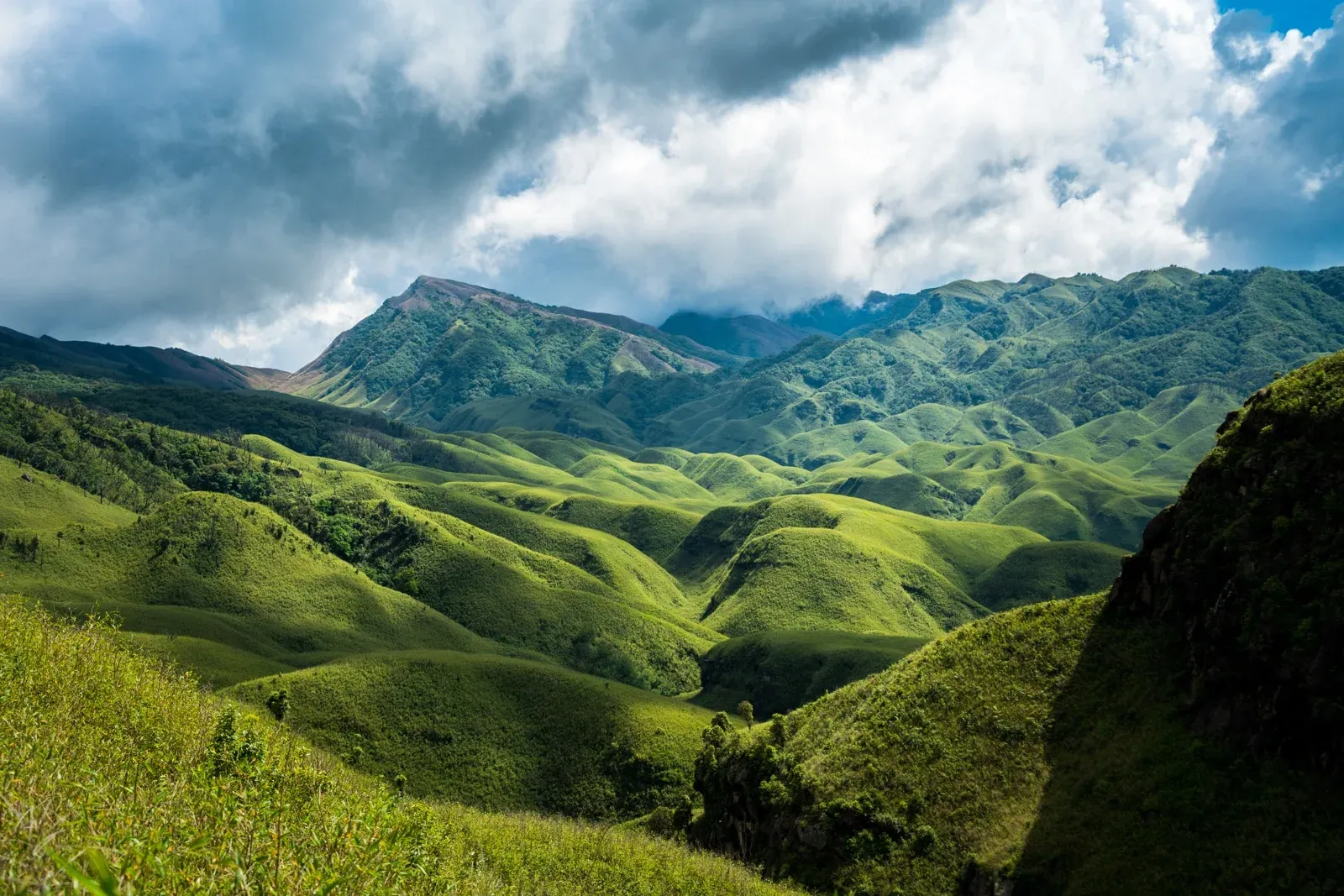 Bharat Mandapam, New Delhi, 110001
Bharat Mandapam, New Delhi, 110001 Bharat Mandapam, New Delhi, 110001
Bharat Mandapam, New Delhi, 110001Hi, I'm Purvi


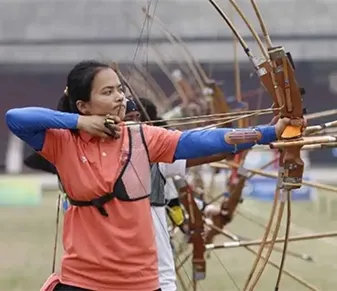
Like many other North East states, archery is an important traditional sport in Nagaland. Tribal archery competitions are held during festivals like the Hornbill Festival, reflecting the martial heritage of the Naga people.
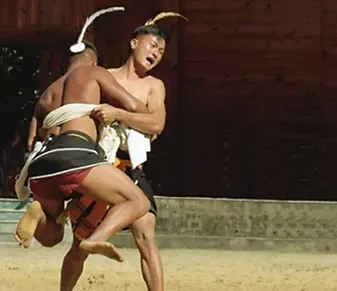
Naga wrestling, particularly among the Angami tribe, is a famous traditional sport in Nagaland. It is a form of unarmed combat where two opponents try to throw each other to the ground. The annual Naga Wrestling Championship is a major event, attracting participants and spectators from all over the state and beyond.
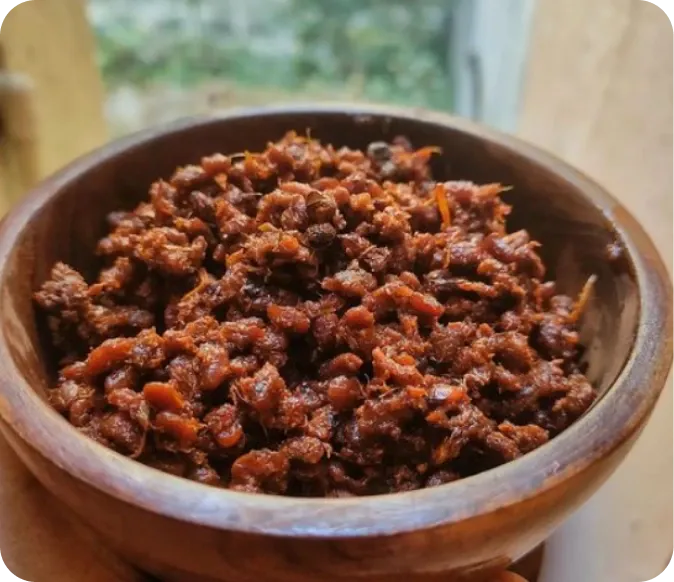
Axone, also known as akhuni, is a popular food of Nagaland made of fermented soybean. Made in almost every household in Nagaland, it is mostly served as a side dish in powdered form and cake form. Axone is prepared in different ways in different households of Nagaland, some important and popular are: It is used along with vegetables for making stew and is most importantly used to make chutney. Every household’s favourite Axone dishes are: Smoked pork in Axone, Dried river fish with Axone.
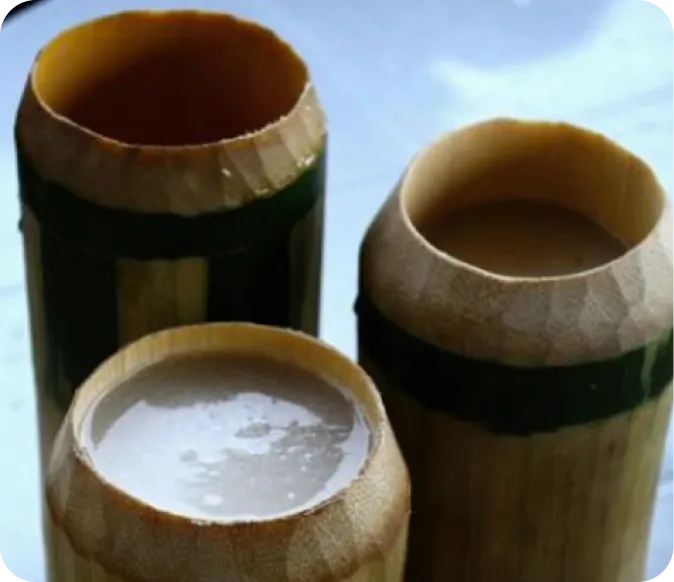
A fermented rice beer of Nagaland, popularly known as Apong. This drink is famous in Nagaland and prepared by sprouting, fermentation by yeast and enzymes. The starch in the rice is made into malt to bring a particular taste and effect. People enjoy this drink with their friends to have fun and excitement.
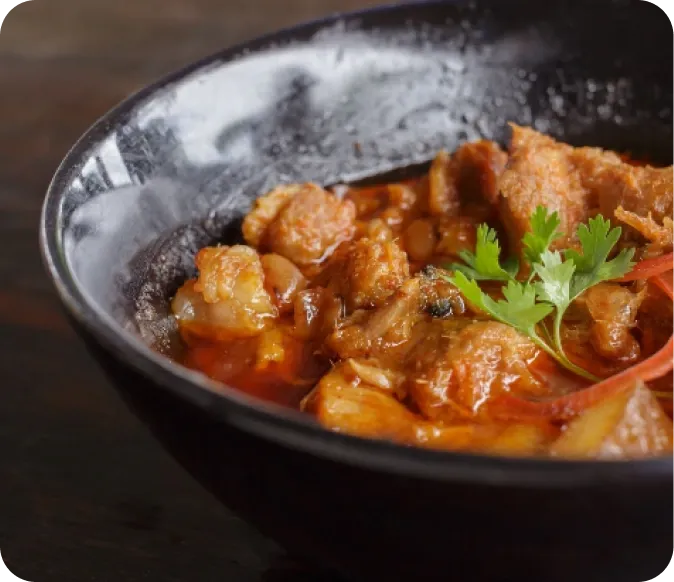
Aikibeye is a dish that comprises of Mustard leaf and Colocasia roots. This dish is cooked with very little salt and no spices giving it a bland flavour making it perfect for being eaten with the flavorful and spicy Non- Veg dishes of Nagaland. Very little water is used as this is mostly preferred thick.
The Kohima War Cemetery is one of the most significant World War II memorials in North East India. Situated on Garrison Hill, the cemetery commemorates the soldiers who fought and died during the Battle of Kohima. The cemetery is renowned for its beautifully maintained graves and the poignant inscription on the 2nd Division Memorial: "When You Go Home, Tell Them Of Us And Say, For Your Tomorrow, We Gave Our Today." The site is a symbol of the courage and sacrifice of the Allied forces and is a place of solemn remembrance.
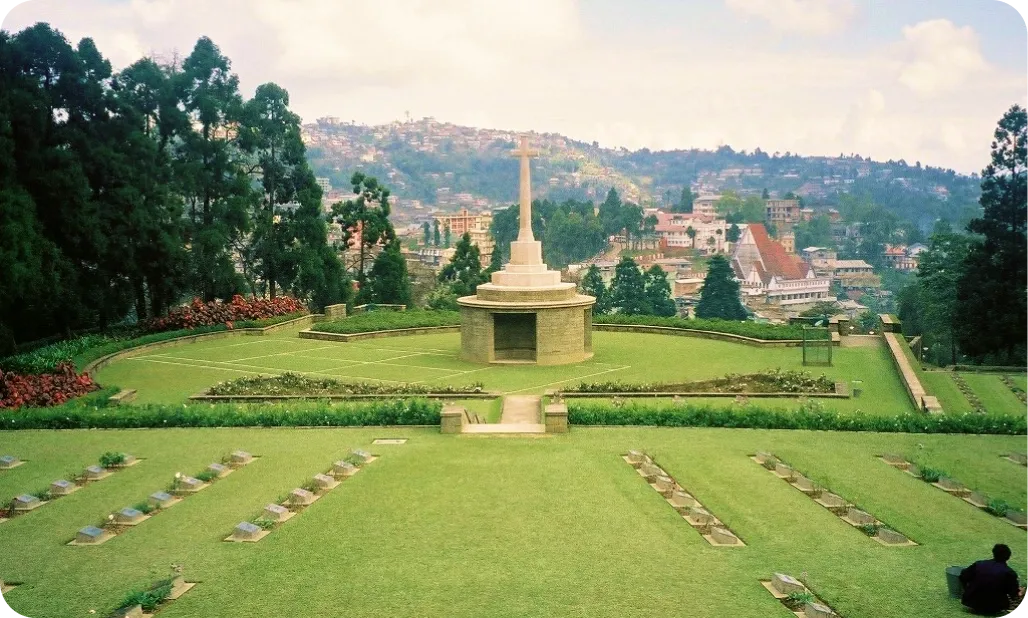
Dzukou Valley is a valley located at the border of the Indian states of Nagaland and Manipur. Its a spectacular visual treat of emerald green hills, lush forests, serpentine streams and myriad colourful flowers that dot the vast plain valley and its meadows. It is popularly known as "Valley of Flowers of the North-East". It is situated at an altitude of 2438 m above sea level, behind the Japfü Peak located in Nagaland. This interesting valley looks like a mown lawn from a distance and is watered by two meandering streams viz Dzukou river and the Japfu river which often freezes in winter. This entire valley is adorned with lilies, aconitum, euphorbia and multi-coloured rhododendrons. They envelope the valley floor like a carpet so much that there are times when you can't see the valley at all.
